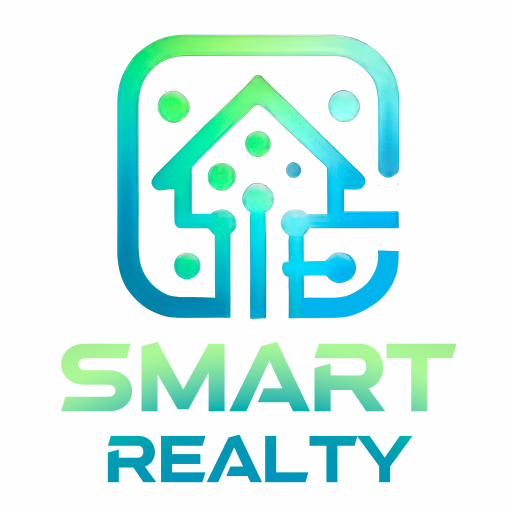The integration of artificial intelligence in real estate is rapidly changing the fabric of how properties are marketed and sold. Pioneers in the industry are increasingly tapping into AI real estate lead generation to identify potential clients with unparalleled precision. Amid this transformation, real estate AI solutions are not just optional upgrades but necessary tools for staying competitive in a tech-driven market.
Propelled by the power to analyze and leverage large streams of data, AI for real estate lead generation is helping professionals predict buyer and seller behaviors, shape captivating marketing campaigns, and cultivate leads more efficiently than ever before. These smart technologies offer real estate agents a unique opportunity to connect with their audience at a deeper level, crafting personalized experiences that resonate and convert.
Key Takeaways
- AI solutions are redefining the process of generating and nurturing leads in real estate.
- Personalized campaigns powered by AI drive higher engagement and conversion rates.
- Predictive analytics allow real estate professionals to spot trends and buyer behaviors.
- AI-generated content and videos enrich the client journey, fostering trust and interaction.
- Automated customer service tools like ChatGPT offer round-the-clock assistance and optimized lead handling.
- Real estate agents can now make data-driven decisions thanks to insights furnished by AI.
The Revolution of AI in Real Estate Technology
The advent of Artificial Intelligence (AI) has ushered in a transformative era for the real estate industry. By infusing advanced technology into routine operations, real estate professionals can now leverage AI to gain unprecedented insights and efficiencies in their work. This section explores the deep integration of AI in real estate technology, how it enhances lead generation capabilities, and provides a glimpse into successful applications that have reaped tangible benefits from AI adoption.
Defining AI and Its Role in Real Estate
AI, often described as the simulation of human intelligence by machines, plays a crucial role in today’s dynamic real estate environment. It aids in various aspects such as automating repetitive tasks, analyzing massive datasets for valuable patterns, and aiding in complex decision-making. The impact of AI in real estate is most evident in the way it streamlines operations, saves time, and personalizes engagements with clients.
The Impact of AI on Real Estate Lead Generation
Lead generation, the lifeblood of real estate marketing, has been significantly optimized through AI technologies. Predictive analytics, an AI forte, now empowers agents to craft targeted campaigns that resonate more profoundly with potential clients. AI-powered chatbots serve as the initial touchpoints, interacting in real time to qualify leads and direct high-potential opportunities to sales teams. This technological sophistication leads to higher quality leads and an enhanced conversion rate, marking AI as an indispensable tool for forward-thinking marketers.
Case Studies: Success Stories in AI-Driven Real Estate
Across the industry, there are numerous success stories reflecting the efficacious implementation of AI in real estate. These case studies showcase how AI-driven strategies have realized increased ROI, improved lead quality, and heightened client satisfaction. Through strategic application of AI for detailed market analysis, real estate professionals have been able to refine their marketing approach, ensuring that they reach the right audience with the right message at the right time.
To illustrate, a renown real estate agency implemented an AI-driven CRM system for personalized communication which resulted in a 30% increase in lead-to-client conversion. Another firm utilized AI for sophisticated property recommendations; the result was a notable elevation in client engagement and sales closures. These instances underscore the potential of AI to reshape the real estate landscape, making it an era where technology and data reign supreme.
Understanding AI for Real Estate Lead Generation
Real estate lead generation is undergoing a transformation with the integration of artificial intelligence (AI), enhancing the ability of realtors to connect with potential clients. This technological progression introduces advanced lead generation techniques that are not just automated but are also inherently personal.
Innovative lead generation strategies for real estate leverage AI to analyze and predict customer behavior, creating opportunities for realtors to offer precisely what prospects need, even before they ask. By adopting tools such as AI video makers, real estate professionals can craft engaging and informative marketing content designed to appeal to a wide audience.
- Lead Scoring: AI-driven analytics contribute to more accurate lead scoring, focusing agents’ efforts on prospects most likely to convert.
- Targeted Marketing: Through the study of behavioral patterns, AI facilitates the creation of targeted marketing campaigns that resonate with specific demographics.
- Automation of Tasks: Routine tasks like follow-ups and report generation are handled by AI, freeing up time for agents to cultivate relationships with their clients.
AI not only equips realtors with real estate lead generation using AI techniques, but it also molds the real estate landscape into one that is more efficient and customer-centric. Let’s delve into the dynamic world of AI and explore its potential in propelling your business to new heights.
AI-Powered Real Estate CRM: A Game Changer
The landscape of real estate is undergoing a significant transformation thanks to the advent of AI-powered real estate CRM systems. Far beyond basic customer management, these advanced platforms are redefining the industry by offering unparalleled customization and efficiency in managing client relationships. By leveraging sophisticated algorithms, CRM systems provide deep insights into client needs, driving both sales and satisfaction.
Enhancing Client Relationships with Machine Learning
Real estate professionals are now equipped to understand and serve their clients like never before. Machine learning for real estate leads is the cornerstone of this development, enabling a personal touch at scale. CRM systems analyze interaction patterns, purchase history, and preferences to give agents the tools to create a more tailored experience for each individual client.
Automated Follow-Ups: Maximizing Engagement and Retention
Consistency is key in maintaining fruitful client relationships, and automation for real estate lead generation is driving this consistency. Automated follow-ups ensure that no client slips through the cracks, increasing both engagement and retention. These smart systems schedule communications and reminders, creating a seamless flow of interaction that keeps clients continuously engaged throughout the sales process.
As the adoption of AI in real estate continues to rise, agents armed with AI-powered tools are setting new standards for success. These systems not only foster stronger relationships but also save invaluable time, allowing agents to focus on what they do best—closing deals and growing their business.
Innovative Real Estate Prospecting Tools and Their Benefits
The advent of AI for real estate sales has ushered in an array of sophisticated real estate prospecting tools that harness the power of predictive analytics in real estate. These tools are redefining how agents approach the market, ensuring that every lead pursued has the highest chance of culminating in a successful transaction.
Tools such as Zillow 3D Home, SmartDraw, and Matterport serve as prime examples of how immersive technology can dramatically enhance client experience and streamline the sales process. Utilizing these tools, real estate professionals can deliver virtual property tours, generate detailed floor plans, and offer robust analytics to identify promising investment ventures.
- Zillow 3D Home integrates seamlessly with listing pages, providing a comprehensive view of properties that attracts and engages potential buyers.
- SmartDraw facilitates the creation of precise floor plans and site maps, which are a valuable resource for agents and clients alike.
- Matterport leads the charge in 3D virtual tours, offering a virtual walk-through experience that rivals a physical showing.
Predictive analytics derived from these tools offer insights into market trends and consumer behavior, granting agents the foresight to align their prospecting strategies with data-backed decision making.
| Tool | Function | Benefit |
|---|---|---|
| Zillow 3D Home | 3D Home Tours | Engages buyers with a realistic view of the property |
| SmartDraw | Floor Plan Creation | Enhances listings with detailed visual plans |
| Matterport | Virtual Reality Tours | Provides immersive property experiences |
The incorporation of these advanced tools signifies a significant leap forward for the industry, ensuring that real estate prospecting is not just about quantity but about the quality and relevance of each prospect. In light of these technological advancements, agents equipped with AI are poised to excel in their sales endeavors, offering unparalleled service to their clientele.
Real Estate Lead Generation Using AI: Strategies and Techniques
In the rapidly evolving real estate market, successful professionals are leveraging AI for real estate marketing to secure a competitive edge. Artificial Intelligence is not just a futuristic concept; it’s a practical tool for real estate lead generation strategies that enables agents and marketers to operate at their peak efficiency and reach potential clients in innovative ways.
Targeted Advertising with Predictive Analytics
Integrating predictive analytics into advertising campaigns allows for highly targeted advertising. By analyzing historical data and consumer behavior patterns, AI can forecast future market trends and consumer needs, equipping real estate professionals with the insights to reach the right audience at the right time. This precision in targeting not only elevates the chances of generating qualified leads but also ensures that marketing budgets are allocated more effectively.
Personalized Content Creation with AI
Personalization is the cornerstone of modern marketing and AI excels in providing customized experiences. With AI-generated real estate leads in mind, marketers are now able to craft content that resonates personally with each individual prospect. AI-fueled tools support the creation of tailored blogs, enticing interactive quizzes, and dynamic landing pages that cater to the nuanced preferences of each lead, ensuring that every interaction adds value to their journey and significantly enhances lead generation outcomes.
AI Chatbots for Real Estate: Transforming Customer Interactions
The integration of AI chatbots for real estate is reshaping the level of service and support that can be offered within the industry. As the ai-powered real estate marketplace operates round-the-clock, chatbots provide real estate professionals with a potent tool to stay ahead in a highly competitive environment. Customer inquiries are addressed instantaneously, thereby enhancing user experience and facilitating quick, efficient real estate lead generation services.


In an industry that never sleeps, AI chatbots ensure that real estate agencies remain reactive and responsive at all times. The convenience of on-demand service meets the expectations of modern clients who seek immediate interaction. Chatbots stand at the forefront, engaging potential buyers and sellers, providing them with vital information and directing them towards the right listings or services without any delay.
From Initial Contact to Qualified Lead: The Chatbot Journey
The journey from initial contact to a qualified lead is intricate and nuanced. AI chatbots are adept at identifying potential leads by engaging users in conversational dialogue. They ask relevant questions that not only provide insights into the clients’ needs but also foster a sense of personalized service. As these smart systems meticulously collect and analyze data, they expedite the qualification process, ensuring that real estate professionals can devote their time to the most promising inquiries.
Moreover, AI chatbots can initiate follow-up actions, trigger reminder emails, and even schedule appointments, reflecting their invaluable role in the generation and nurturing of leads. This technology demonstrates a tangible evolution in the way client relationships are managed in the real estate realm, leading to improved outcomes for both the realty business and its clientele.
Advanced Lead Generation Techniques with AI Technologies
Incorporating advanced lead generation techniques is crucial for real estate professionals looking to gain a competitive advantage in today’s market. With the emergence of AI technologies, industry experts can tap into the power of big data in real estate lead generation to identify and capitalize on lucrative opportunities. Real estate lead scoring with AI systems is at the forefront of this transformation, providing an objective and data-driven way to evaluate the potential of each lead.
These innovative systems harness vast amounts of data to foresee market trends and client needs, resulting in a strategic selection process for lead pursuit. Such an approach not only saves time but also significantly improves the efficiency of the sales cycle. Here’s a closer look at how AI enables superior lead management:
| Feature | Benefits | Application in Real Estate |
|---|---|---|
| Data Aggregation | Gathering comprehensive information from multiple sources. | Consolidating market data, consumer behavior, and property statistics for robust lead profiles. |
| Predictive Analytics | Forecasting future behaviors based on historical data. | Anticipating housing trends and pricing to target leads proactively. |
| Lead Scoring Models | Assigning numerical values to rank leads according to their potential. | Prioritizing follow-up efforts on high-scoring leads to increase conversion rates. |
| Personalization Algorithms | Customizing interactions to enhance customer engagement. | Delivering tailored communications and property suggestions based on the lead’s preferences. |
| Automation | Streamlining repetitive tasks and processes. | Automating lead nurturing campaigns to maintain connection and build interest continuously. |
This AI-led methodology is not about replacing the human touch in real estate transactions, but rather enhancing it. By taking on the heavy lifting of data management and analysis, real estate professionals can focus on what they do best—providing personalized client services, closing deals, and building lasting relationships. As AI grows more sophisticated, its role in shaping the future of real estate lead generation firmly cements a new era of innovation and success.
Real Estate Lead Nurturing with AI: Improving Conversion Rates
The integration of AI into real estate lead nurturing is redefining how agents connect with and convert potential clients. By harnessing the power of AI-generated real estate leads, professionals in the industry are witnessing a paradigm shift in their approach to sales and client relations.
Automating Personalized Communication for Effective Follow-Up
AI virtual assistants for real estate are at the forefront of this technological advancement, enabling an unmatched level of personalized communication. These AI systems learn from interactions and apply this knowledge to deliver tailored messages to clients, ensuring that each touchpoint is meaningful and likely to advance the relationship.
Tracking Lead Engagement and Behavior with AI Analytics
With sophisticated AI analytics, real estate professionals can track lead engagement and behaviors, uncovering preferences and interests that inform their follow-up strategies. This data-driven approach assures that all communication is crafted to meet the unique needs of each lead, promoting higher conversion rates and enhanced client satisfaction.


As the real estate sector continues to embrace these innovative tools, the process of real estate lead nurturing with AI is swiftly becoming a standard practice among top-tier agencies. Let’s explore a comparative analysis of leads before and after the introduction of AI technologies into the nurturing process:
| Before AI Integration | After AI Integration | |
|---|---|---|
| Number of Follow-Ups | Manual, as needed | Automated, consistent |
| Personalization Level | Generic | Highly personalized |
| Response Time | Varies | Near-instant |
| Lead Tracking Precision | Basic | Advanced analytics |
| Conversion Rates | Lower | Significantly higher |
This table demonstrates that the adoption of AI not only streamlines the lead nurturing process but also reinforces the connections established between agent and client, ultimately leading to growth in conversion rates. By employing real estate lead nurturing with AI, professionals unlock a world of potential for their business, ensuring they remain at the cutting edge of the industry today and into the future.
Measuring the Success of AI Real Estate Lead Generation
In the dynamic world of real estate, the use of real estate lead generation software equipped with AI capabilities has revolutionized marketing strategies. However, to truly harness the power of AI for real estate marketing, professionals must know how to measure and interpret the effectiveness of their efforts. Through the meticulous analysis of performance data, real estate agents can optimize their AI-driven methods, ensuring that the ai-generated real estate leads translate into tangible sales outcomes.
Key Performance Indicators for AI-Enhanced Lead Generation
Identifying the right Key Performance Indicators (KPIs) is crucial for evaluating the impact of AI in lead generation. Metrics such as website traffic, the number of leads acquired, conversion rates, and the cost per lead provide insights into how efficiently AI tools are performing. Additionally, the return on investment (ROI) offers a holistic view of the financial benefits reaped from AI implementation.
Adopting these KPIs helps in setting benchmarks for success and tracking progress over time. By assessing these metrics regularly, real estate professionals can make data-driven decisions to enhance their marketing campaigns’ effectiveness and stay ahead in a competitive market.
Using Data to Refine and Optimize AI Strategies
Data is the cornerstone of any effective AI marketing strategy in real estate. By analyzing the results obtained from various AI applications, agents can identify patterns and trends that inform future marketing endeavors. Through methods such as A/B testing, they can fine-tune their approaches, ensuring that messages resonate with their intended audience.
Moreover, by leveraging the predictive analysis features of AI, professionals can forecast market behaviors and adapt their strategies accordingly. This proactive stance permits continual growth and refinement of techniques, paving the way for sustained success in AI-real estate marketing integration.
Ultimately, the judicious use of real estate lead generation software encompassing AI technology will not only elevate the number of leads but also enhance the quality of those leads, culminating in increased sales and satisfied clients.
Conclusion
The integration of artificial intelligence in the realm of real estate has brought forth an era marked by unprecedented efficiency and customization. As we reflect on the transformative role of AI in this sector, it is evident that the deployment of ai-powered real estate tools has greatly enhanced lead generation, streamlined the sales process, and provided clients with uniquely tailored experiences. This integral marriage of technology and strategy has redefined what it means to engage with prospects in an increasingly digital marketplace.
Summarizing the AI Advantage in Real Estate Sales
Artificial intelligence has entrenched itself as a cornerstone of ai-driven real estate marketing, largely due to its capability to analyze vast data sets and discern valuable insights that guide more personalized customer interactions. The application of ai for real estate lead generation has resulted in higher conversion rates, a more proactive approach to client needs, and a refined focus on high-quality prospects that are more likely to result in successful transactions.
Future Outlook: The Evolving Landscape of AI in Real Estate
Looking to the future, the trajectory of AI’s impact on real estate points to a continually evolving industry landscape. The promise of more sophisticated AI developments suggests a scenario where real estate professionals are equipped with nuanced tools that predict consumer behavior with greater accuracy and provide even more strategic marketing solutions. As AI technology matures and becomes more ingrained in the industry, real estate professionals can anticipate a wealth of opportunities that will emerge from AI’s potential to foster innovation and promote growth in the market.
FAQ
How is AI used for real estate lead generation?
Artificial intelligence is used in real estate lead generation to automate and optimize the process of finding potential clients. AI technologies can analyze data to predict buying behaviors, score leads for their potential value, and personalize communication to increase engagement. Tools such as AI-powered chatbots, CRMs, and predictive analytics are commonly used to generate and nurture leads more effectively.
What are some AI technologies that have transformed the real estate sector?
AI technologies that have significantly impacted the real estate sector include machine learning algorithms for lead scoring, natural language processing in chatbots for instant customer service, predictive analytics for targeted marketing efforts, and immersive technologies like virtual property tours. These tools help to analyze big data, automate tasks, and enhance the customer experience.
Can you provide examples of successful AI-driven real estate marketing campaigns?
While specific campaign details may vary, success stories generally highlight the use of targeted advertising with AI-driven predictive analytics to pinpoint ideal clients, AI-powered CRMs for maintaining relationships with potential buyers, and personalized content powered by AI to engage and convert leads. These campaigns likely employed various AI technologies to maximize their outreach and conversion rates.
How does AI-powered real estate CRM contribute to sales?
AI-powered CRMs contribute to sales by helping real estate professionals to understand and predict customer needs and preferences, automate follow-up communications, and maintain long-term relationships with clients. This ensures that no opportunities are missed and that potential clients receive a personalized experience that encourages them to take the next step in the purchasing journey.
What innovative tools are available for real estate prospecting?
Innovative tools for real estate prospecting include Zillow 3D Home for virtual tours, Matterport for 3D property visualization, and various AI-powered platforms providing market analysis and lead predictions. These tools use predictive analytics and big data to help realtors identify promising leads and reach out to them with the right message at the right time.
What strategies are effective for real estate lead generation using AI?
Effective strategies for real estate lead generation using AI include leveraging targeted ads informed by predictive analytics, creating personalized content and recommendations based on customer data, and utilizing chatbots to qualify leads and provide immediate assistance. These strategies help ensure that marketing efforts are tailored to the interests and behaviors of potential clients.
How do AI chatbots transform customer interactions in real estate?
AI chatbots transform customer interactions by performing as virtual agents that are available 24/7 to answer inquiries, guide users through listings, and assist them through the purchasing process. These chatbots are capable of learning and adapting over time to provide more precise information and support, making the lead qualification process more efficient.
What is lead scoring with AI and how does it work in real estate?
Lead scoring with AI is a method of evaluating potential leads using algorithms that analyze data on consumer behavior, demography, and engagement with marketing materials. In real estate, this helps agents prioritize their outreach efforts by focusing on leads that are more likely to result in a sale, thereby optimizing their time and resources.
How does AI improve real estate lead nurturing and conversion rates?
AI improves lead nurturing and conversion rates by enabling automated, personalized follow-ups and content delivery that resonate with potential clients at different stages of the buyer’s journey. AI tools track and analyze how leads interact with marketing materials, adjust messaging based on engagement, and identify the most opportune moments for agents to re-engage and close deals.
What KPIs should be used to measure the success of AI in real estate lead generation?
Key Performance Indicators for measuring the success of AI in real estate lead generation include an increase in quality traffic to listings, higher lead conversion rates, a decrease in cost per lead, and a better return on investment (ROI). Analyzing these KPIs helps realtors understand the efficiency and profitability of their AI-implemented marketing strategies.
What is the future of AI in the real estate industry?
The future of AI in the real estate industry points towards continuous growth and innovation. We can expect further advancements in AI technology that will streamline and enhance every aspect of real estate transactions, from marketing to closing. AI will likely become more sophisticated in analyzing market data, automating routine tasks, and providing richer and more personalized experiences for buyers and sellers.
Source Links
- https://remindermedia.com/blog/ai-for-realtors-how-agents-can-use-artificial-intelligence-to-generate-real-estate-leads/
- https://www.trymaverick.com/blog-posts/unlock-the-power-of-ai-tools-to-boost-real-estate-marketing
- https://www.linkedin.com/advice/1/how-can-you-use-artificial-intelligence-generate-bdtle

